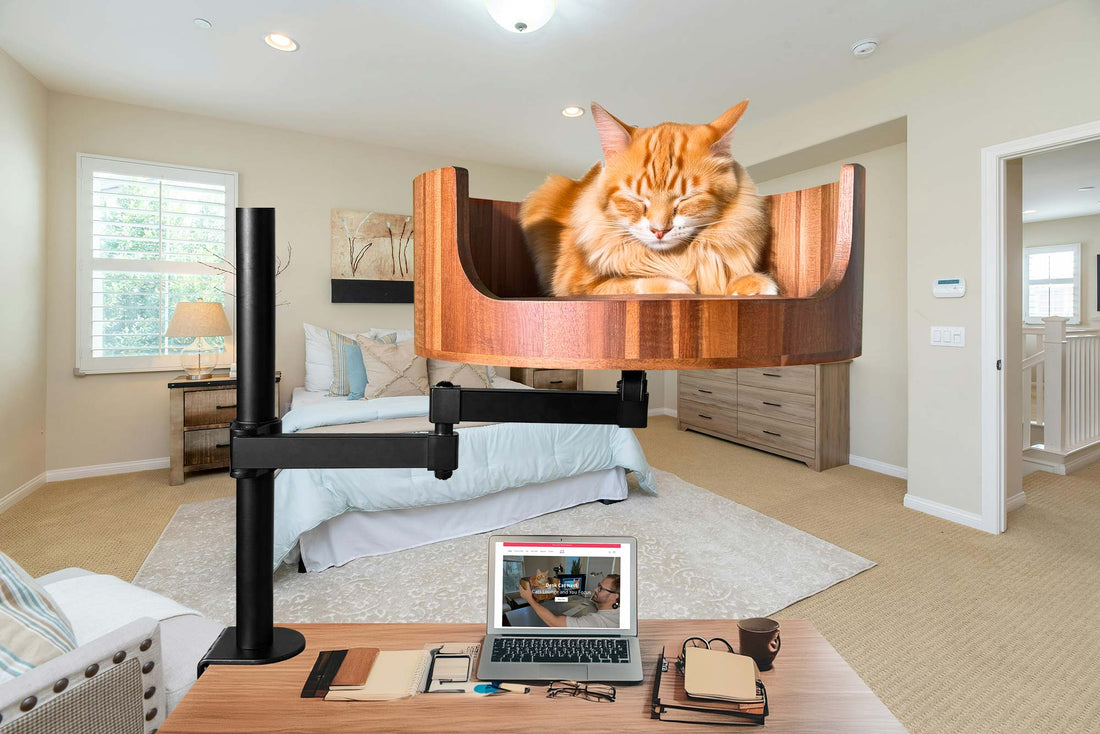
Why Does My Cat Vomit After Eating? Understanding Causes
Share
Have you ever noticed your cat vomiting shortly after eating their meal? This common occurrence can be a cause for concern for many cat owners. Understanding the reasons behind why your feline friend may be vomiting after eating is important in order to ensure their health and well-being. In this article, we will explore the various possible causes of why your cat may be experiencing this issue and provide insights on how you can help alleviate it.
From hairballs to dietary indiscretions, there are a variety of factors that can contribute to your cat vomiting after eating. By delving into the potential reasons behind this behavior, you can better understand how to address it and potentially prevent it from happening in the future. Additionally, we will discuss signs to look out for, when to seek veterinary care, and potential treatment options that may help your cat feel better. Stay tuned as we dive into the world of cat vomiting and explore the various causes behind this common feline behavior.
1. Cats vomiting after eating can be a common occurrence, but it is important to understand the underlying causes.
2. Potential reasons for cats vomiting after eating include hairballs, eating too quickly, allergies, or underlying health issues.
3. Monitoring your cat's behavior, examining their diet, and visiting the vet can help determine the cause of the vomiting.
4. Providing a stress-free eating environment, feeding smaller meals more frequently, and grooming your cat regularly may help prevent vomiting episodes.
5. Consulting with a veterinarian is essential to address any concerns and ensure your cat's health and well-being.
Causes of Vomiting in Cats After Eating
Vomiting in cats can be caused by a variety of factors. One common reason is hairballs, which are typically formed when cats groom themselves and swallow their own fur. Other possible causes include dietary indiscretions, such as eating too quickly or consuming something toxic or spoiled. Some cats may have food allergies or intolerances that lead to vomiting after eating certain ingredients. In more serious cases, underlying health conditions like kidney disease, pancreatitis, or gastrointestinal issues could be to blame for frequent vomiting episodes.
Preventing Vomiting in Cats After Eating
There are several steps you can take to help prevent your cat from vomiting after meals. One approach is to feed your cat smaller, more frequent meals throughout the day to help reduce the chances of overeating. You can also try feeding your cat a specialized diet formulated for sensitive stomachs or allergies, and avoid giving them table scraps or other human foods that could trigger a reaction. It's important to monitor your cat's behavior and consult with a veterinarian if vomiting persists or is accompanied by other concerning symptoms.
Treatment Options for Cats Who Vomit After Eating
If your cat continues to vomit after eating, it's important to seek advice from a veterinarian to determine the underlying cause and appropriate course of treatment. Depending on the diagnosis, treatment options may include changes to your cat's diet, medication to help manage symptoms, or in more severe cases, surgery or other medical interventions. Your veterinarian may also recommend diagnostic tests, such as bloodwork or imaging scans, to help pinpoint the cause of your cat's vomiting and develop a tailored treatment plan. Remember to follow your veterinarian's guidance and monitor your cat's progress closely to ensure a successful outcome.
Desk Cat Nest FAQ
Why does my cat vomit after eating?
There are several reasons why your cat might vomit after eating. Common causes include eating too quickly, food allergies, hairballs, gastrointestinal issues, or underlying health conditions. It is important to monitor your cat's vomiting habits and consult with a veterinarian if the issue persists.
How can Desk Cat Nest help with preventing my cat from vomiting after eating?
Desk Cat Nest provides a comfortable and secure eating environment for your cat, allowing them to eat at a slower pace and reducing the chances of vomiting due to eating too quickly. The raised design also helps promote better digestion and reduce strain on your cat's neck and back while eating.
Is Desk Cat Nest suitable for cats with food allergies?
Desk Cat Nest is made with non-toxic materials and is safe for cats with food allergies. However, it is important to use hypoallergenic food and consult with your veterinarian to ensure your cat's dietary needs are met.
Can Desk Cat Nest help with hairball prevention?
While Desk Cat Nest provides a comfortable eating environment that may help reduce hairball formation, it is not a guaranteed solution for preventing hairballs. Regular grooming and feeding a balanced diet can also help reduce hairball formation in cats.
Is Desk Cat Nest easy to clean?
Desk Cat Nest is designed for easy cleaning with removable and dishwasher-safe stainless steel bowls. Simply remove the bowls from the stand and wash them with soap and water or place them in the dishwasher for convenience.
In conclusion, a Desk Cat Bed is a valuable solution for cats that vomit after eating. The elevated position of the bed can help reduce the chances of regurgitation by promoting better digestion and reducing the risk of acid reflux. Additionally, the comfortable and cozy design of the bed creates a stress-free environment for your cat, further aiding in their digestion process. Overall, investing in a Desk Cat Bed can improve your cat's overall well-being and reduce the occurrence of vomiting after meals.



















































